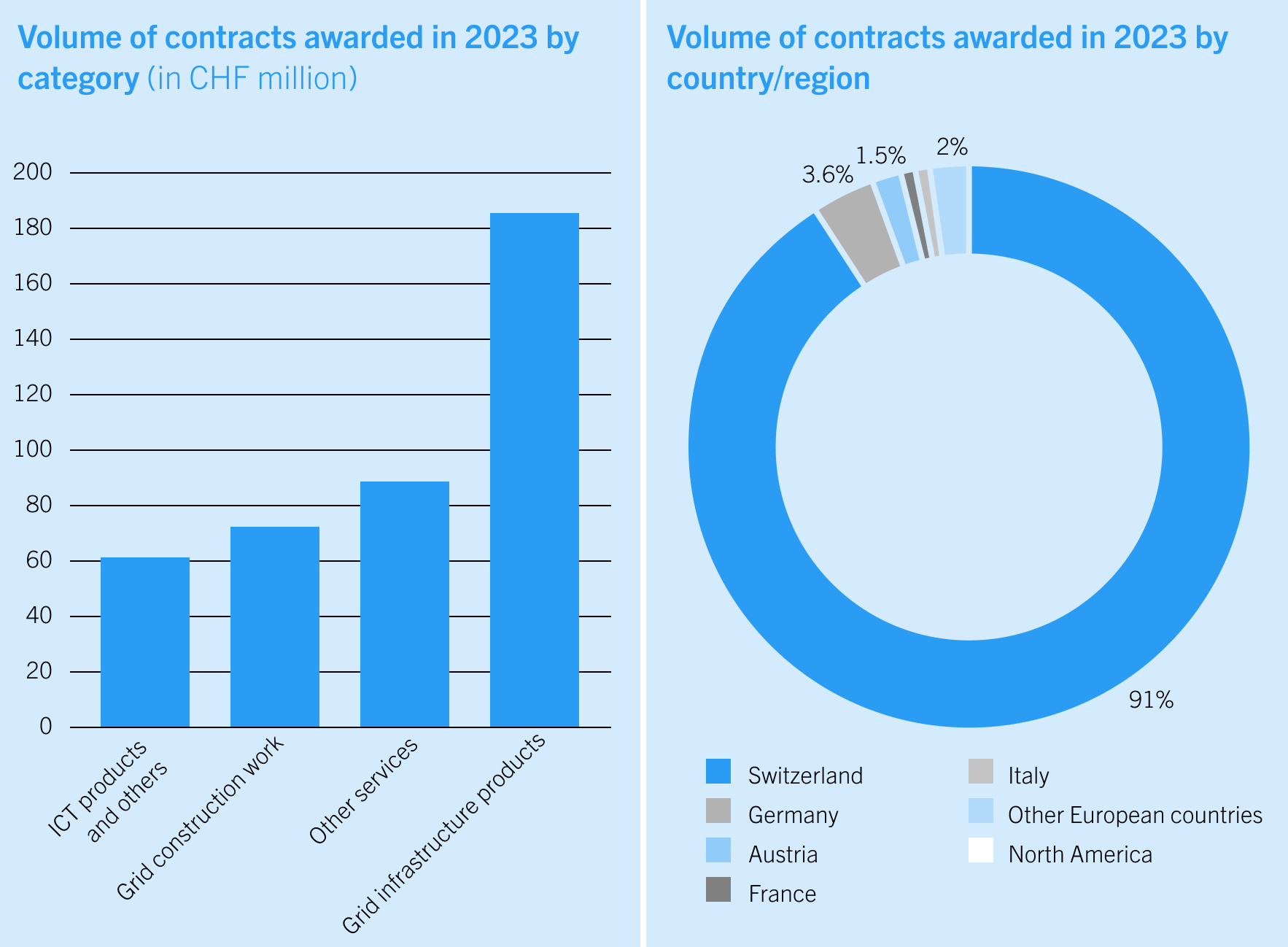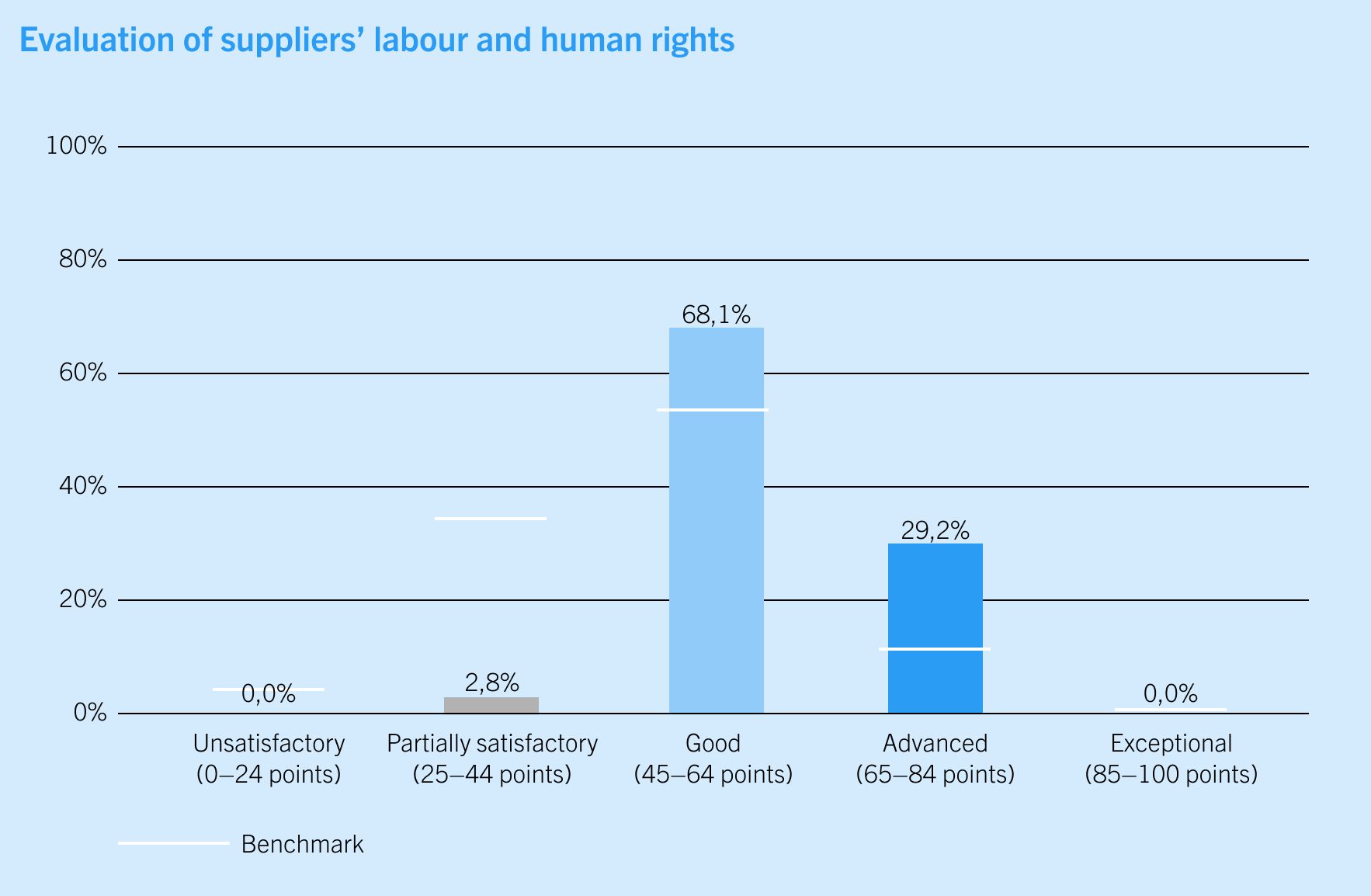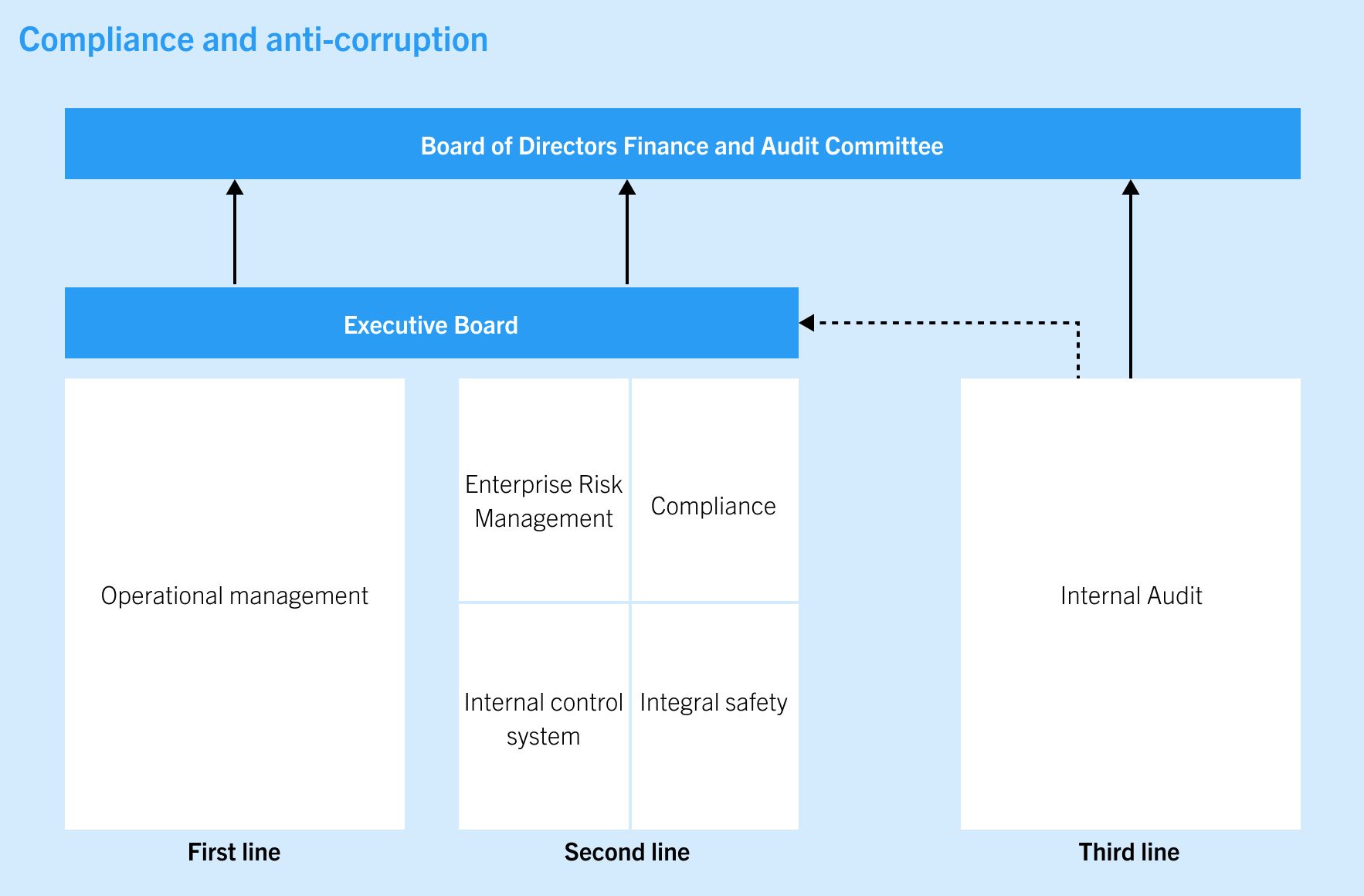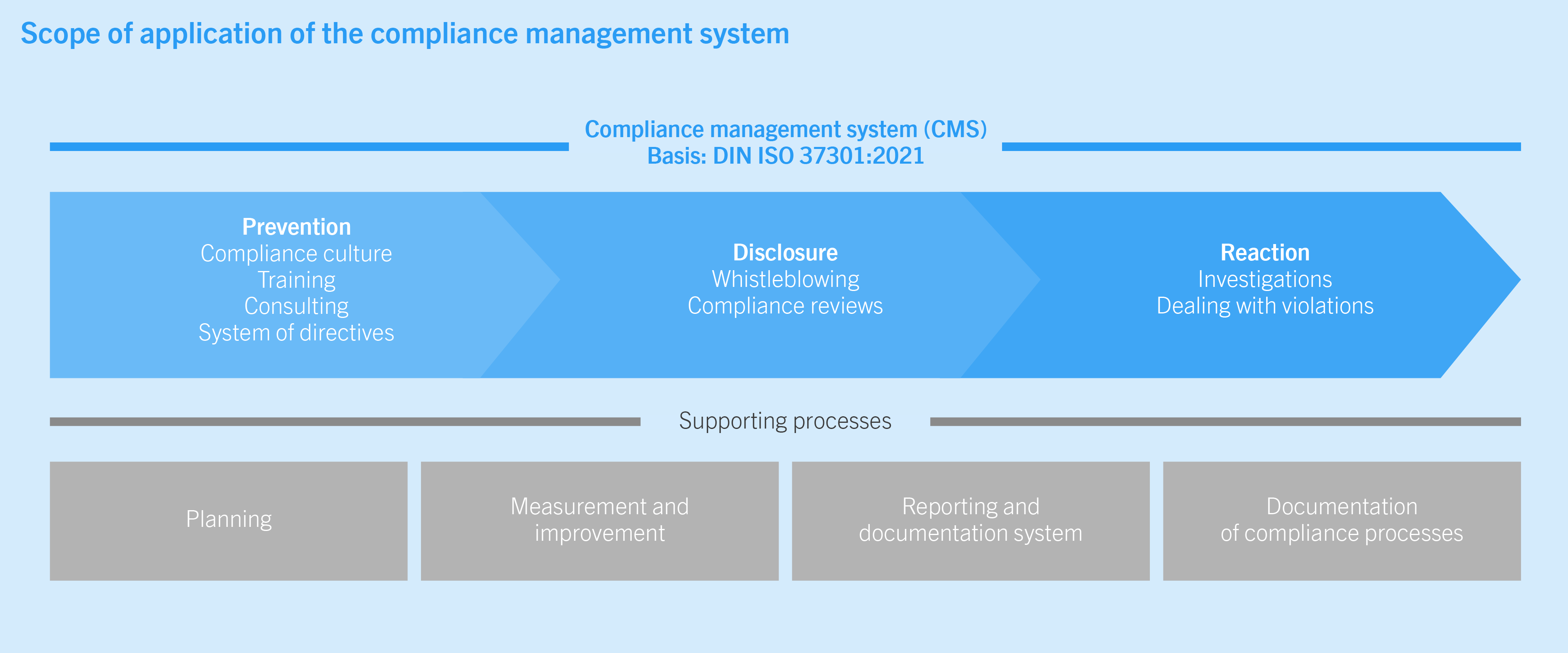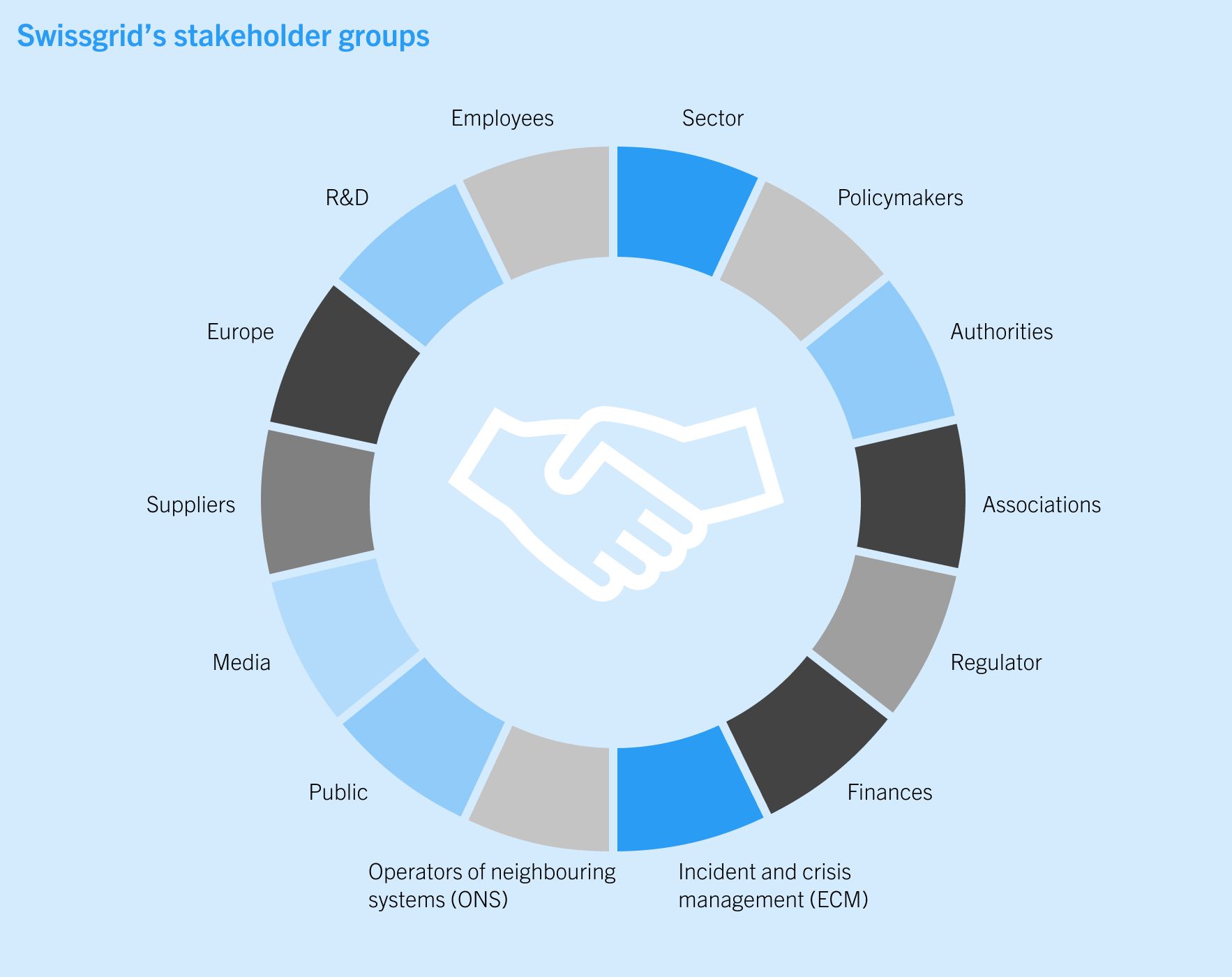| Phase | Details | Involvement of various stakeholders in the legally prescribed procedure | Stakeholders from authorities and politics | Public stakeholders | Swissgrid measures: authorities/politicians | Swissgrid measures: the public |
| Needs analysis | Future grid development requirements are analysed as part of the planning for several years, known as the strategic grid. The planning of the strategic grid is based on the scenario framework for Switzerland. | The scenario framework for Switzerland is drawn up by the SFOE and approved by the Federal Council. | Authorities at federal level, national and cantonal politicians | Environmental organisations, interest groups, researchers, the media, the public | | • Industry working group on regionalisation under the leadership of Swissgrid |
| • Information about the scenarios and methodology of the planning for several years and about the necessary projects via various communication channels |
| Swissgrid’s strategic grid is reviewed by the regulator ElCom prior to publication. |
| Preparation | In this phase, Swissgrid develops various underground cable and overhead line corridors for the area in which a line is planned for each grid projects. | Swissgrid and the cantons affected by the project conclude a coordination agreement during this phase. It ensures that the interests of the cantons are incorporated into the planning process early on. | Authorities and politicians at cantonal level, municipal councils, local politicians | Environmental organisations, interest groups, directly affected parties, the media | • Dialogue with affected cantons | • Public awareness-raising via regional media and municipal publications |
| • Information from the SFOE on the procedure and the planned submission of the application for the sectoral plan for transmission lines (SÜL) | • Publication of current information on the grid project website |
| • Presentation to parliamentarians of the cantons involved |
| • Events with local councillors and interest groups along the line under discussion |
| Inclusion in the federal sectoral plan for transmission lines (SÜL) | Swissgrid submits the application for the SÜL procedure. This is the federal government’s overarching planning and coordination tool for the expansion and new construction of transmission lines. At the end of this phase, the Federal Council determines the corridor for the line and the technology (overhead line, underground cable or a combination of the two). | A monitoring group appointed by the SFOE with representatives of the Swiss government, cantons, environmental protection organisations and Swissgrid discusses the proposed options and submits a recommendation. Stakeholders can make their views known as part of a public consultation procedure organised by the SFOE (in accordance with Art. 19 of the Spatial Planning Ordinance). | Authorities at federal, cantonal and municipal level, local politicians | | • Before submitting the application: personal discussions with the municipalities | • Personal discussions with the organised public (interest groups, associations) |
| • Initial communication when submitting the application via various channels |
| • Media releases and flyers distributed to households |
| • Information events when making decisions in favour of a planning area and a corridor |
| Construction project | Swissgrid prepares the specific construction project within the planning corridor defined by the Federal Council. | During this phase, negotiations on easements are held and the exact line route is determined. Swissgrid appoints a project advisory council, which ideally also includes representatives of the affected municipalities. The project advisory council has the task of raising the concerns of the population and other stakeholders and identifying options for action in order to make the best possible use of the design latitude of the project. | Municipalities, local politicians | Environmental organisations, interest groups, directly affected parties, the media | • Organisation of the project advisory council and regular meetings | • Organisation of the project advisory council and regular meetings |
| • Ongoing information about the activities of the project advisory council | • Flyers distributed to households |
| Planning approval procedure | Swissgrid submits an application for planning permission to the relevant authorities. At the end of this phase, the authorities – either the ESTI or the SFOE – issue Swissgrid with the planning approval decision, and may impose additional conditions that must be included in the project planning. | During this phase, the project is presented to the public, and stakeholders and affected parties can lodge complaints. If the differences cannot be resolved by the ESTI, the SFOE continues the negotiations. Responsibility for the negotiations lies with the authorities. Complaints can be referred to the courts. | Authorities at federal level | Environmental organisations, interest groups, directly affected parties, the media | • Information on the start of the planning approval procedure | • Media and information events at the start of the planning approval procedure |
| • Flyers distributed to households |
| • Attendance of trade fairs |
| Construction | Once the legally binding planning approval has been granted, the construction work can begin. Swissgrid procures the necessary supplies and services in accordance with the provisions of public procurement law. | | Municipalities, local politicians | Environmental organisations, interest groups, directly affected parties, the media | • Information events for local and regional authorities | • Media events and visits to mark important milestones |
| • Flyers distributed to households about the status of work |
| • Extensive information on the grid project website |
| • Attendance of trade fairs |
| • Construction signs on site |

